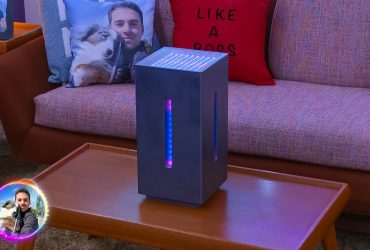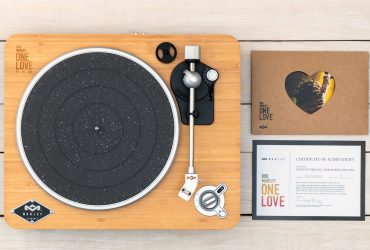Fitbit has introduced Sleep Profile, a new feature that comes with a Fitbit Premium subscription, affording more detailed and long-ranging analysis of your sleep patterns. Sleep Profile is also designed to make sleep data easier to interpret via fun animal characters and help you improve your sleep.
Sleep experts, research scientists, and neurologists all note that proper sleep isn’t just about getting 7-8 hours of rest per night, reports Fitbit. Sleep Profile analyzes other important data across 10 key metrics each month. It calculates trends and compares them to what’s typical for your age and gender, then provides tips to improve.
The Fitbit research team studied 1,000 different sleep features during its analysis before distilling it down to the key metrics included in the profile. This ranges from new metrics, including sleep schedule variability, time before sound sleep, and disrupted sleep, to previously tracked metrics such as sleep duration, restfulness, and REM sleep. The idea is for the data points to together portray a holistic month-long view of your sleep patterns and quality.
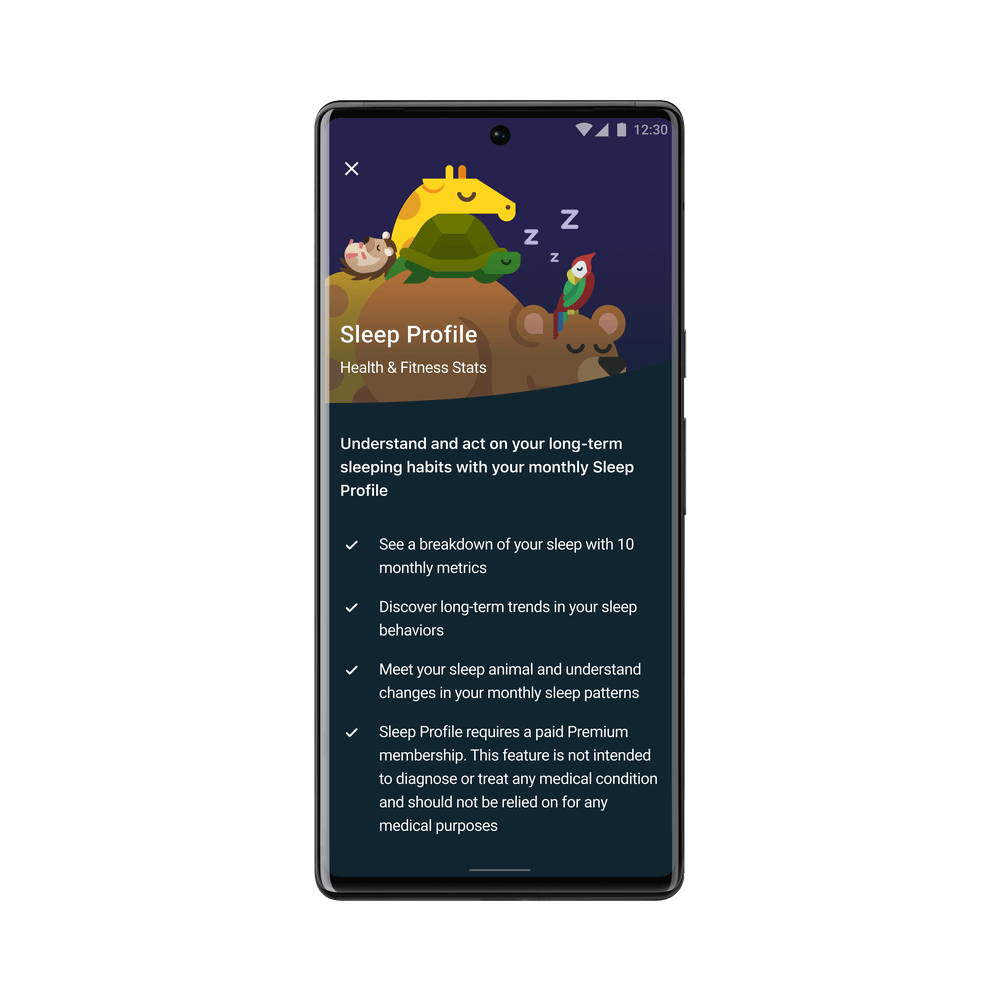
You’ll also be provided with ideal ranges for each metric and get an idea of where you fall within each range so you can consider where to focus your efforts for improvement. These metrics are shown on a monthly aggregate view.
Fitbit Sleep Profile users will receive a monthly sleep analysis where they can see ideal ranges for someone of a similar age and gender, and where they fall within each.
These critical data points gathered from your sleep analysis inform your designated Sleep Animal, providing a fun way to understand your sleeping style. The extensive research and testing found six animal archetypes, each chosen for their distinct trends that correlate each animal’s behaviour with common user sleeping behaviours and patterns.
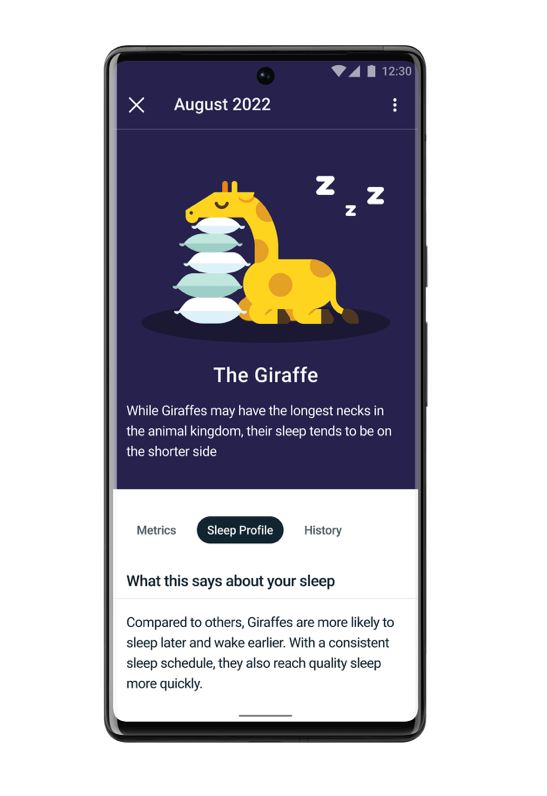
Giraffe: You tend to have shorter sleep, go to bed later and wake up earlier. Despite this, you tend to get a good amount of deep and REM sleep, even if you tend to sleep for a shorter duration than the typical recommendations,
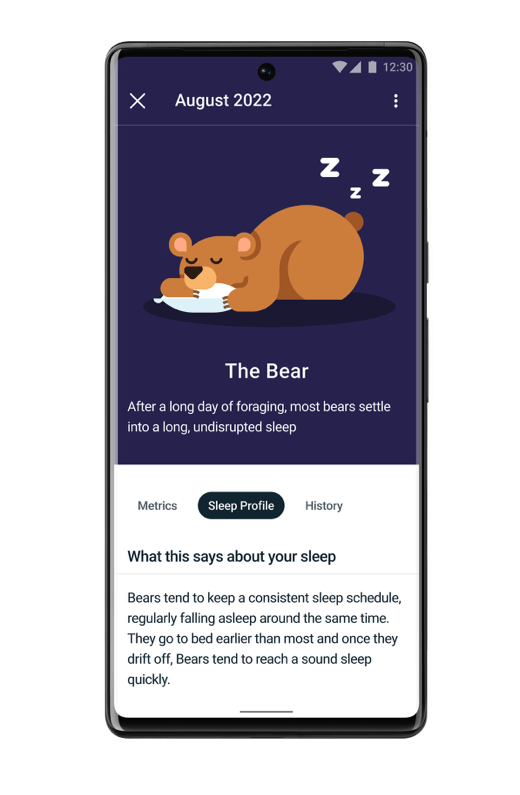
Bear: You have a fairly consistent sleep schedule, often falling asleep at the same time each night. You turn in earlier than most others of your age and gender and fall asleep quickly once your head hits the pillow. You have long and restful sleep with good deep and REM sleep durations.
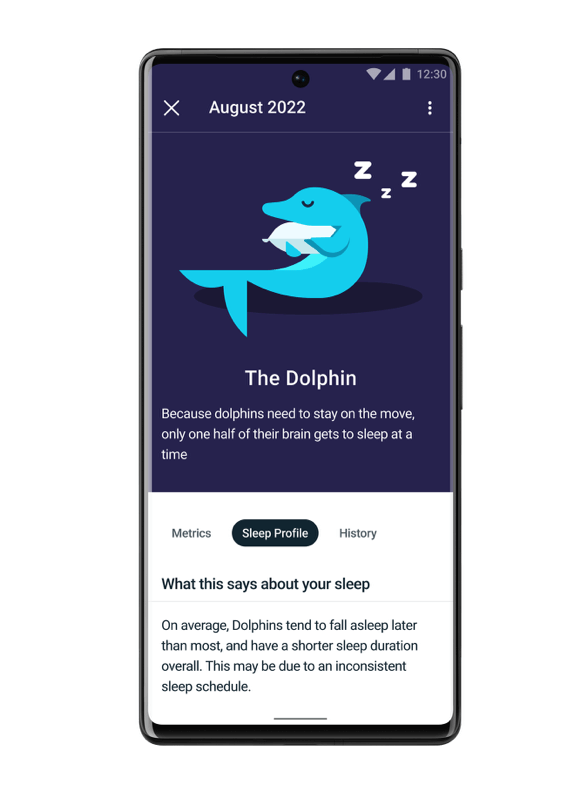
Dolphin: You fall asleep later than most and sleep less overall, possibly the result of an inconsistent sleep schedule. You’re also more of a light sleeper, resulting in having to take naps to catch up.
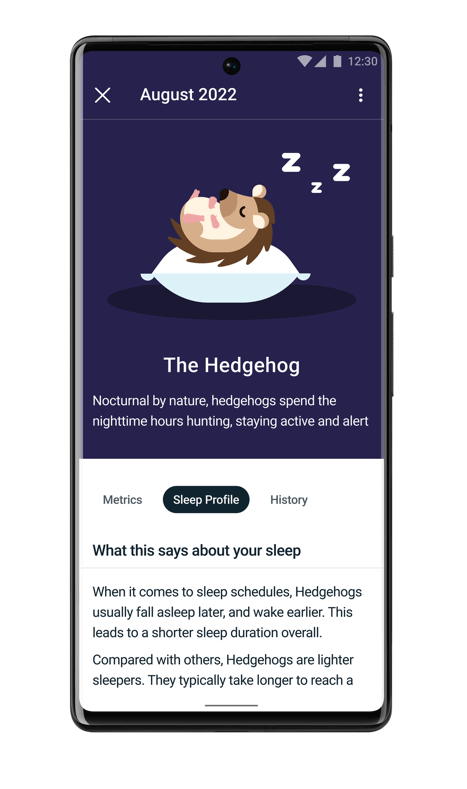
Hedgehog: You fall asleep later and wake up earlier, but also only get light sleep. This means it takes you longer to fall into a sound sleep, and results in less deep and REM sleep.
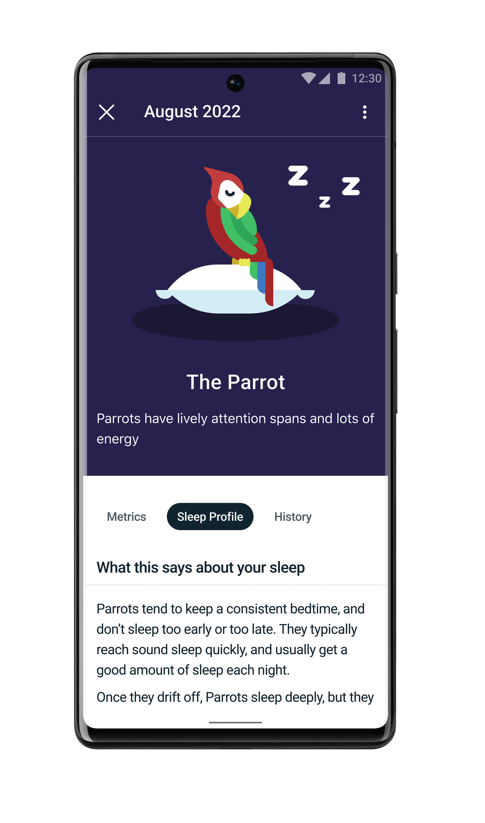
Parrot: You have a consistent bedtime that isn’t too early to bed nor too late to rise. You reach sound sleep quickly and overall get a good amount of sleep each night. While you sleep deeply, you don’t get a lot of REM, however, since you tend to wake up briefly throughout the night.
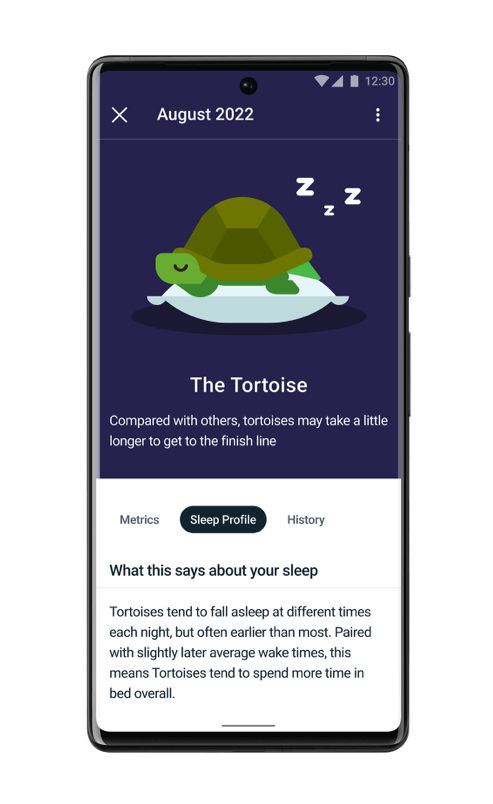
Tortoise: You go to bed at different times each night, but still often earlier than most. You also have slightly later average wake up times and spend more time in bed overall than others of your age and gender. You do find, however, that you take longer to reach a state of sound sleeping, which results in lower than average deep and REM sleep.
It will take some time to get a full analysis of your sleep after signing up for Premium or using the feature once you update the app. Wear your Fitbit device to sleep for at least 14 nights per calendar month to receive an assessment. The more you wear the device to sleep, the more precise the evaluation. Sleep can vary significantly from night to night, so it’s helpful to analyze your sleep data over a longer period from your own sleep environment to uncover more insights into your habits and how you can improve.
As a Premium member you will see your Sleep Profile, including your sleep animal and monthly sleep analysis, on the first day of every month. Animals can change from month to month, and data collected throughout the month will inform the next animal you receive the following month. There is no “ideal” animal, says Fitbit. Rather, each one can be used to better understand your sleep patterns and how you can improve your sleep quality.
Based on your sleeper type’s behavior, you will see where your sleep patterns compare to others like you as well so you can decide if you need to set a more consistent sleep schedule or create a bedtime routine that includes something like mindfulness content to help you fall asleep (this is also available in the Fitbit app with a Premium subscription).
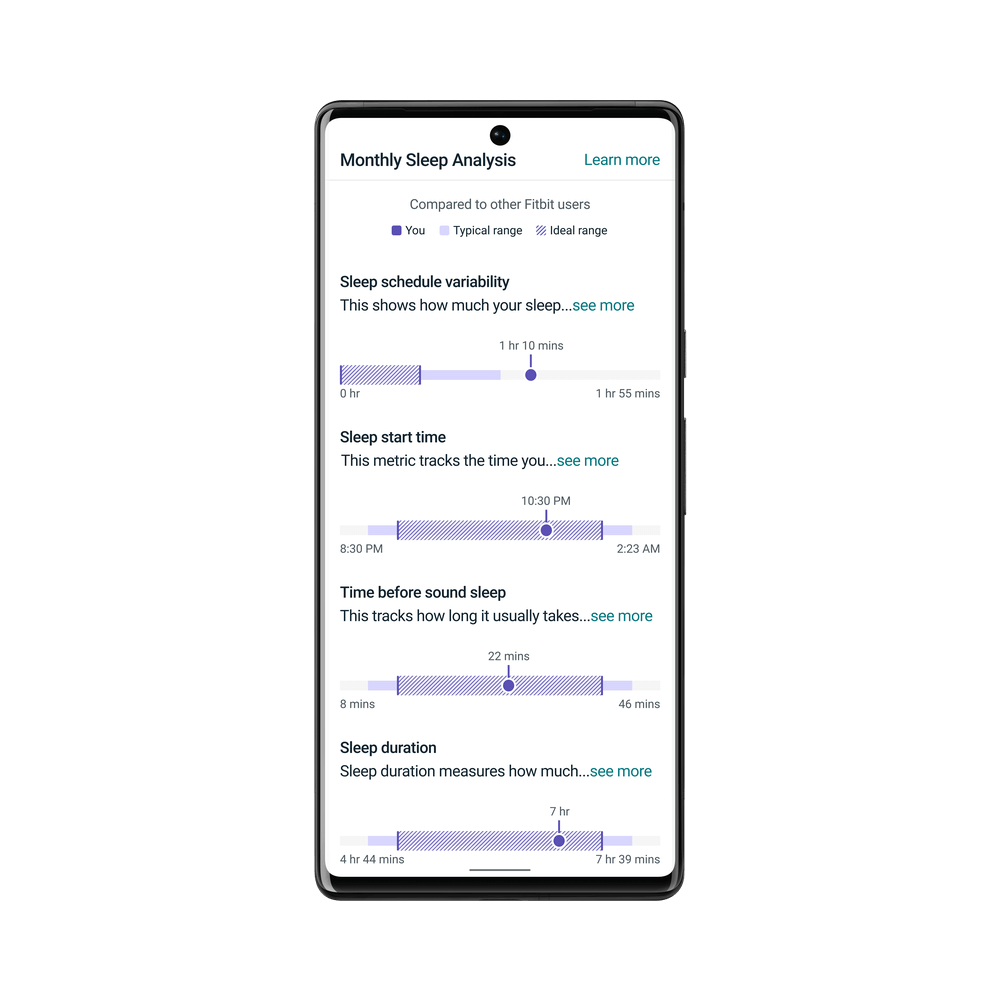
The reason Fitbit is so heavily focused on sleep is that getting quality sleep actually goes hand-in-hand with your oerall fitness, health, and wellness. Poor sleep can be correlated to increased potential health risks including diabetes, cardiovascular problems, obesity, poor cognitive functioning and more.
Sleep Profile is rolling out in the Fitbit app to Premium users with Sense, Versa 3, Versa 2, Charge 5, Luxe, and Inspire 2 devices upon launch. You will receive a first profile during the week of July 4, followed by monthly profiles delivered in the Fitbit app on the first of each month. Note that Sleep Profiles aren’t intended for medical purposes: if you have a serious concern, always consult a health care professional.
A Fitbit Premium subscription is $13/mo. or $105 for the year if you pay upfront. Many of the latest trackers, including the ones on this list, come with a free trial that ranges anywhere from three months up to a full year so you can try it out before committing.







